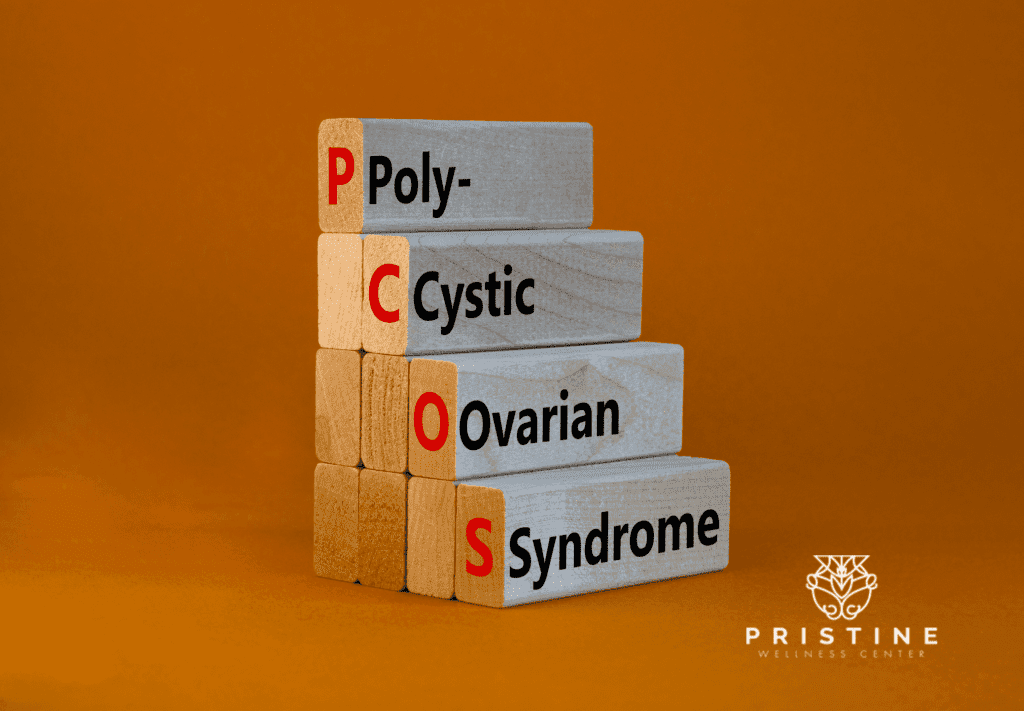Polycystic ovarian syndrome (PCOS) is the most common female endocrine disorder, affecting 10% of women of reproductive age.
PCOS is associated with oligoovulation ( less ovulation, irregular menses), , infertility, acne, hirsutism ( facial hair) , hair loss and metabolic sequelae such as weight gain. Although genetics play a role, lifestyle factors have a significant influence on disease presentation and symptoms. Moreover, integrative strategies ranging from natural products to complementary therapies can provide adjuvant therapy to help women achieve their health goals.

Two out of three of the following criteria are required to make the diagnosis
- Oligo- and/or anovulation ( less than 6 periods in a year or no periods)
- Clinical and/or biochemical signs of hyperandrogenism such as acne or facial hair and hair loss in the scalp ( androgenic alopecia) .
- Polycystic ovaries (by ultrasound) >12 follicles 2–9 mm or ovarian volume >10 mL
Many women with irregular menses and hyperandrogenic symptoms can be diagnosed based on history and physical exam alone. However, the diagnosis of PCOS is only confirmed when other conditions that mimic PCOS are excluded.
Women with PCOS are at higher risk for cardiovascular disease, insulin resistance, weight gain, sleep apnea, sexual dysfunction, eating disorder, fatty liver as well as mood disorder such as depression and anxiety.
In integrative medicine, we look at all organs and rule out other causes of these symptoms and then treat the issues by using different modalities.
Integrative therapy:
Additionally, there are some supplements and medications that might be indicated in your care.
- D-chiro-inositol (DCI), Don’t take high doses if you have bipolar disorder.
- Omega 3, Vitamin D, N acetyl cysteine, Chaste tree berry, Licorice. The dose and cautions for each supplement will be provided for each individual case.
- Meds: Metformin in case of IR, Spironolactone, progesterone, statins.
These are possible beneficial meds/ supplements but each patient is special and the decision on which one to take and the dosage has to be personalized for each patient.
Even supplements can have side effects and you need a doctor to guide you to an appropriate and safe treatment plan.
Here’s more about the latest research on statins and PCOS:
https://pmc.ncbi.nlm.nih.gov/articles/PMC10890374/pdf/medicina-60-00244.pdf
